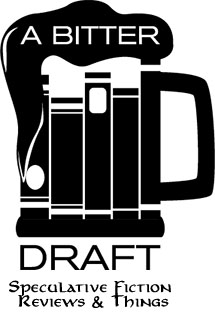 The Dragon’s Path, first in Daniel Abraham’s The Dagger and the Coin quintet, was an interesting read for me. I hadn’t read the Long Prince Quartet, so I was new to his writing style. Being a fan of A Song of Ice and Fire, I read reviews stating that The Dagger and the Coin series was similar in that it was more focused on political battles rather than real ones. This can be off-putting to some, but in this case, Abraham nails it.
The Dragon’s Path, first in Daniel Abraham’s The Dagger and the Coin quintet, was an interesting read for me. I hadn’t read the Long Prince Quartet, so I was new to his writing style. Being a fan of A Song of Ice and Fire, I read reviews stating that The Dagger and the Coin series was similar in that it was more focused on political battles rather than real ones. This can be off-putting to some, but in this case, Abraham nails it.
The Dragon’s Path is also different from recent fantasy in that there aren’t really any knights or dragons. In their place are mercenaries, priests, and merchants. Despite the very traditional appearance and the presence of the most common beast in fantasy in the title, the story is not quite as traditional as it appears – there are only one or two military skirmishes in what outwardly would seem like a story bristling with action. To accompany the political maneuverings of the lords and ladies, Abraham weaves in a full-fledged economy. I’m certainly no fan of economics, so reading about contracts and sponsorship and other economic dealings was not very interesting to me. Somehow, Abraham managed to make these parts of the story compelling for me even though the topic itself wasn’t appealing. His ability to do so is the mark of a damn good author.
There are thirteen different “races” – though not your typical fantasy races – they’re all variations of humankind, also known as Firstblood, and Abraham describes them more and more throughout the novel in ways that really worked with the story, such as “the Tralgu flicked his long ears” or “the Kurtadam’s baubles rang as he walked” so they’re nice and easy to remember – though it was only this way for some of the races, as others left me turning back pages to recall their descriptions.
There can be no doubt that The Dragon’s Path is a character driven story. The world was described well enough, but the characters – the mercenary captain Marcus, Cithrin the orphan banker, Geder Palliako, and occasionally Dawson Kalliam, the latter two being nobles. As has become the norm in recent fantasy, most, if not all of the characters are neither inherently good nor evil, but somewhere in between – they all did things that I liked and didn’t. Geder and Cithrin had the most engrossing stories, with the former transforming from a fairly pathetic noble to a cold-hearted bastard and the latter in her journey to adulthood.
The Dragon’s Path really picks up around halfway through, and despite its traditional look there is more than meets the eye, making for a compelling, character-oriented story showcasing, in intensity at some points, political bedlam and it does its job in setting up the remainder of the quintet. The sequel, The King’s Blood, released in May of last year, is supposed to be a huge step up from The Dragon’s Path, and I’m very excited to continue reading Abraham’s work.
Daniel can be found on his website as well as on Twitter.
You can find The Dragon’s Path on Amazon US or UK as well as The Book Depository.

I’ve always thought about that myself- the economic systems in fictional worlds. I’m no economist, but it’s always interesting stuff, and as I learn more about the subject, there are certain worlds where things just don’t make any sense economically. It’s now on my to-read list.